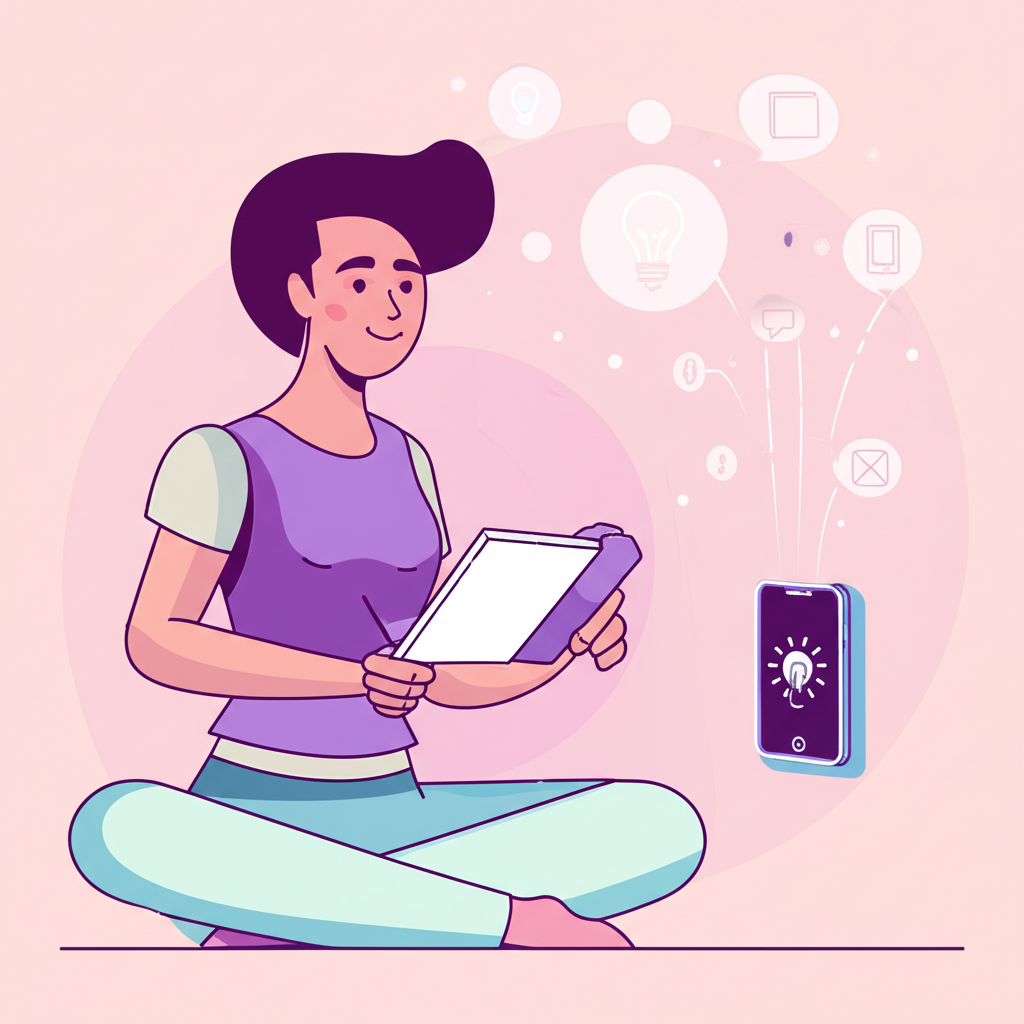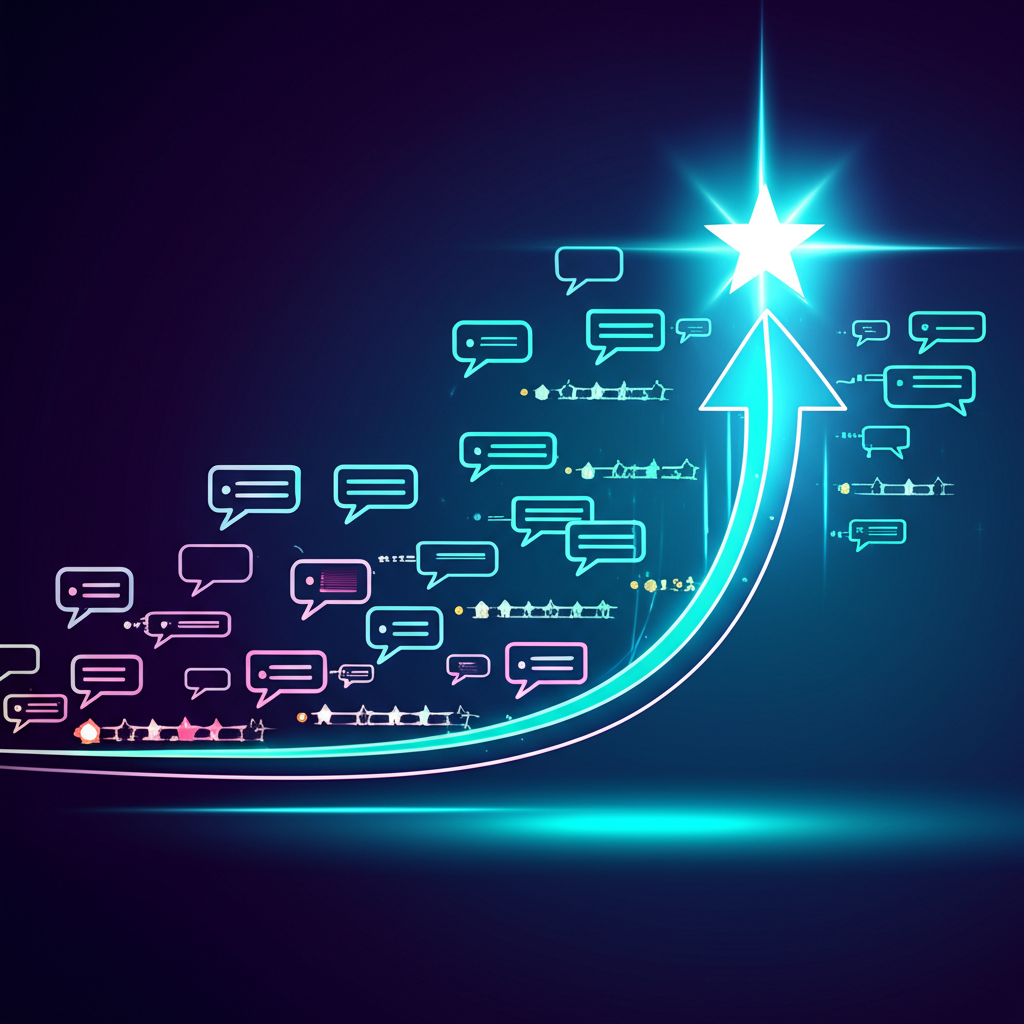Mental wellness has truly entered our pockets. Countless mental health apps are now available. However, discerning truly effective ones from mere digital distractions can feel overwhelming. Many apps promise quick fixes; yet, few deliver lasting, meaningful support.
This article cuts through that noise. We focus specifically on apps validated by extensive positive user reviews. These apps consistently show real impact. Furthermore, we highlight only those people praise for genuinely helping them. For more general information on mental health resources, you can always consult reputable organizations like the National Institute of Mental Health (NIMH).
What makes an app “genuinely helpful”? Our criteria include evidence-based techniques. We also look for user-friendliness and accessibility. Most importantly, we seek consistent positive feedback from actual users. These users often share how the apps improved their daily lives.
We offer a curated list to help you navigate your choices. These recommendations are based on verified user experiences. This guide will help you find support for anxiety, stress, sleep, and overall well-being.
The Power of Your Pocket: Why Mental Health Apps Work
Mental health support is more accessible than ever before. Your smartphone can become a powerful tool. It offers immediate access to well-being resources. Consequently, this changes how people approach their mental health journey.
Accessibility and Convenience
Mental health apps democratize wellness support. They make valuable tools available 24/7. You can access them anywhere you have your phone. Therefore, this breaks down traditional barriers like cost, location, or scheduling conflicts. Users can learn at their own pace. Moreover, they enjoy privacy. People can practice skills immediately, right when they need them. Ultimately, this makes support truly personal and flexible.

Rooted in Science: Evidence-Based Techniques
Effective mental health apps are not just simple tools. Instead, they incorporate proven therapeutic approaches. These include Cognitive Behavioral Therapy (CBT) and Dialectical Behavior Therapy (DBT). Many also use mindfulness and meditation techniques. Such methods have strong scientific backing. Furthermore, the best apps translate complex psychological principles into actionable, user-friendly exercises. This makes professional-grade techniques available to everyone.
Top Apps Vetted by Real Users: Our Curated List
The apps listed below consistently receive high ratings. Users provide detailed positive feedback. They often highlight the apps’ effectiveness. This indicates strong user satisfaction and perceived benefit. Consequently, this section shares the top choices based on what real people say.
Managing Daily Stress & Anxiety
When daily life feels overwhelming, these apps offer a calm space. They provide tools for immediate relief. They also help build long-term resilience.
| App Example | Core Focus | Key Features | User Reviews Highlight | Best For |
|---|---|---|---|---|
| Calm | Guided meditations, sleep stories, breathing exercises, calming music. | Daily meditations for various scenarios. Specific programs target anxiety and stress reduction. They offer sleep soundscapes and masterclasses on mental fitness. |
|
Individuals seeking mindfulness practices. It provides immediate stress relief and is a reliable sleep aid. It suits both beginners and experienced meditators. |
| Woebot | Mood tracking, CBT/DBT exercises, journaling prompts, guided conversations (AI-driven). | Structured daily check-ins. Interactive exercises challenge negative thoughts. It offers symptom monitoring and personalized insights based on your input. |
|
Gaining self-awareness. It helps in learning coping mechanisms for mild-to-moderate depression or anxiety. It’s useful for identifying triggers and developing emotional resilience. |
| Sleep Cycle | Smart alarm clock, sleep analysis, guided sleep sounds, power naps, customized sleep programs. | It tracks sleep phases. This allows it to wake you gently in your lightest sleep state. It also offers an extensive library of ambient sounds. |
|
Individuals struggling with insomnia or inconsistent sleep. It’s also great for those seeking data-driven insights to optimize their sleep health. |
| Fabulous | Habit building, daily routines, self-care prompts, motivation, positive affirmations. | Personalized journeys for various goals, like increasing energy or focus. It includes daily check-ins and guided goal setting. It also provides positive affirmations and community support features. |
|
Developing resilience and preventing burnout. It helps in building consistent self-care practices. It’s excellent for integrating healthy habits into daily life. |
Making the Right Choice: Key Considerations Before Downloading
Before you hit “download,” take a moment. Not all apps are created equal. Thinking about a few key aspects will help you pick the best fit.
Data Privacy and Security Considerations
Your mental health data is highly personal. Therefore, reading privacy policies is critical. What data does the app collect? How does it store and use it? Is it anonymized or shared with third parties? Always look for apps with clear commitments to user data protection. These apps should use encryption and adhere to relevant privacy regulations.

Cost vs. Value: Free, Freemium, or Subscription?
Mental health apps come in different pricing models. Some are entirely free. Others offer a “freemium” model. For instance, basic features might be free, but premium content sits behind a paywall. Alternatively, subscription-based apps require a recurring payment for full access.
Consider utilizing free trials. These trials help you assess an app’s fit and value before committing. Remember, “free” does not always mean less effective. Similarly, “expensive” does not guarantee superiority. Value is subjective; it depends entirely on your individual needs and how much benefit you gain.
User Interface & Overall Experience
An app’s design truly matters. An intuitive, aesthetically pleasing interface keeps you engaged. Moreover, it makes the app easy to navigate. This is crucial for sustained use. Seek personalization options. Customizable features and a smooth user journey contribute to consistent and effective use. If an app feels clunky or confusing, you might not use it often.
Clinical Backing and Research
Reliability is key for mental health tools. Check if an app cites scientific research. Was it developed with mental health professionals? Seek collaboration with psychologists or psychiatrists. Furthermore, determine if reputable health organizations recommend the app. This shows the app is based on sound principles.
Beyond the Screen: Integrating Apps into Your Wellness Journey
Mental health apps are powerful. However, they are part of a larger wellness picture. Think of them as supportive companions. They work best when integrated thoughtfully into your life.
Apps as Supplements, Not Substitutes
Apps are valuable tools. They support well-being. Yet, they are not replacements for professional therapy or medical advice. If your symptoms are severe or persistent, always seek professional help. A licensed therapist or doctor can provide the best guidance. Apps can indeed support professional care; however, they cannot replace it. They are there to enhance your journey, not to be the only solution.
Personalization is Key
Mental wellness is highly individual. What works for one person might not work for another. Therefore, experimentation is encouraged. Try a few highly-rated apps. Find the best personal fit for you. Integrate app use into a holistic wellness routine. This could mean combining it with:
- Regular exercise
- Healthy eating
- Sufficient sleep
- Strong social connections
Your journey is unique. Your tools should be too.
Conclusion
Carefully selected mental health apps offer immense value. They are accessible, effective, and truly empowering. These review-backed tools can be significant assets for your personal well-being. Indeed, they bring professional techniques and support right to your fingertips.
Take an active, informed role in managing your mental health. Leverage these trusted digital resources. They offer a path to greater self-awareness and resilience.
The journey to better mental health is ongoing. The right tools can make the path clearer and more supported. Start exploring today. Find the apps that truly resonate with you.
Frequently Asked Questions (FAQs)
Q1: How do I know if a mental health app is safe to use?
A1: Look for apps with clear privacy policies. Check if they mention data encryption. They should also follow regulations like HIPAA (in the US) or GDPR (in Europe). Read user reviews focusing on privacy concerns.
Q2: Can mental health apps replace therapy?
A2: No, apps are not a substitute for professional therapy. They are valuable tools for self-management and support. If you have severe symptoms or need personalized guidance, always consult a licensed therapist or doctor.
Q3: Are free mental health apps effective?
A3: Many free or “freemium” apps offer significant benefits. They often include core features like guided meditations or mood tracking. While paid versions might offer more content, free apps can be a great starting point.
Q4: How long should I use a mental health app to see results?
A4: Consistency is key. Many users report seeing benefits within a few weeks of consistent daily use. However, individual results vary. The more regularly you engage with the app’s features, the more likely you are to experience positive changes.
Q5: What if an app isn’t working for me?
A5: Mental wellness is personal. If an app doesn’t feel right, it’s okay to try another one. Our curated list provides options with different approaches. Experiment to find what best suits your needs and preferences.
Q6: Do these apps share my personal data?
A6: Reputable apps prioritize user privacy. However, always review the app’s privacy policy before downloading. This document explains how they collect, store, and use your data.
Q7: Can I use multiple mental health apps at once?
A7: Yes, you can. Some people find benefit in combining apps. For example, you might use one for sleep and another for daily anxiety management. Just ensure you don’t feel overwhelmed by too many different tools.
Q8: How do I choose the best app for my specific needs?
A8: Start by identifying your main goal: stress reduction, better sleep, mood tracking, etc. Then, read reviews and try free trials of apps that match that focus. Pay attention to user interface and content quality.

